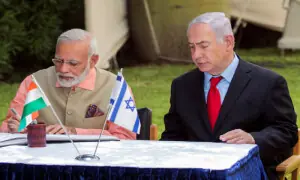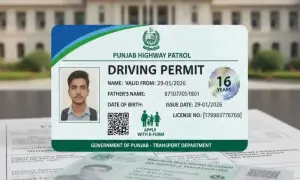Will quit, but won’t come under pressure: PM Shehbaz
4 min readPrime Minister Shehbaz Sharif has reiterated that he would tolerate any pressure while stressing the need for taking austerity measures to improve the economy.
“If there’s any honest mistake, we’ll rectify that. I will quit if I need to, but I will not come under any pressure, I want that to be loud and clear,” told ministers and Federal Board of Revenue officials in Islamabad.
“We need to tighten our belts and serve the public,” he said, “for the first and last time, we need to act in the national interest.”
He visited the FBR headquarters after the International Monetary Fund agreed to loan Pakistan $7 billion to bolster its faltering economy. The South Asian nation agreed to the deal – its 24th IMF payout since 1958 – in exchange for unpopular reforms, including widening its chronically low tax base.
Pakistan last year came to the brink of default as the economy shrivelled amid political chaos following catastrophic 2022 monsoon floods and decades of mismanagement, as well as a global economic downturn.
It was saved by last-minute loans from friendly countries, as well as an IMF rescue package, but its finances remain in dire straits, with high inflation and staggering public debts.
PM Shehbaz lauded his cabinet for working to make sure the government secured the loan. But he called for pursuing a “difficult journey” to augment the macroeconomic numbers.
“We will have to make sacrifices. Now is the time, it is our responsibility to act speedily and work tirelessly. Only then will this be the final IMF programme in this country,” he said.
“If we want to get rid of loans, we need to consider this IMF programme as the final one,” he said, “we should tax those who are not being taxed.”
Dealing with a downturn
Islamabad wrangled for months with IMF officials to unlock the new loan announced Friday, which will be paid out over three years subject to approval by the organisation’s Executive Board.
It came on condition of far-reaching reforms including hiking household bills to remedy a permanently crisis-stricken energy sector and uplifting pitiful tax takings.
In a nation of over 240 million people and where most jobs are in the informal sector, only 5.2 million filed income tax returns in 2022.
During the 2024-25 fiscal year that started at the beginning of July, the government aims to raise nearly $46 billion in taxes, a 40 percent increase from the previous year.
More unusual methods have seen the tax authority block 210,000 SIM cards of mobile users who have not filed tax returns in a bid to widen the revenue bracket.
Under the deal “revenue collections will be supported by simpler and fairer direct and indirect taxation including by bringing net income from the retail, export, and agriculture sectors properly into the tax system”, IMF Pakistan Mission Chief Nathan Porter said in a statement.
Islamabad also aims to reduce its fiscal deficit by 1.5 per cent to 5.9 per cent in the coming year, heeding another key IMF demand.
The IMF said the loan and its conditions should allow Pakistan to “cement macroeconomic stability and create conditions for stronger, more inclusive and resilient growth”.
But Pakistan’s public debt remains huge at $242 billion, and servicing it will still swallow up half of the government’s income in 2024, according to the IMF.
Analysts have criticised Islamabad’s measures as surface-level reforms aimed at courting the IMF without addressing underlying problems.
“It is hard to not see old patterns in this new IMF deal,” Ali Hasanain, associate professor of economics at the Lahore University of Management Sciences, told AFP.
“The IMF has issued a loan similar in size and conditions as the one agreed to five years ago, and five years before that.”
“Will authorities seize the opportunity thus created to embark on fundamental reforms to how the country is run?” he asked. “You would be well-advised not to hold your breath.”
Also, read this
Won’t tolerate pressure to make tough decisions, says PM Shehbaz
FBR imposes regulatory duty on 657 luxury goods, over 2,000 items to get new customs duty
Ending taxpayers’ burden
According to PM Shehbaz putting extra taxes on taxpayers was like a “premium for those who don’t pay [taxes] and it’s a penalty for honest taxpayers”. He was of the view that the government should adopt new strategies and employ advanced technology used by tax authorities throughout the world.
“We collect billions, trillions and we’re still going to the World Bank and others. A country cannot run like this,” he said and told the members that he would provide every financial support to acquire the gadgetries required for such a purpose.
The premier reiterated the need for austerity measures.
(With input from AFP)
For the latest news, follow us on Twitter @Aaj_Urdu. We are also on Facebook, Instagram and YouTube.
























Comments are closed on this story.